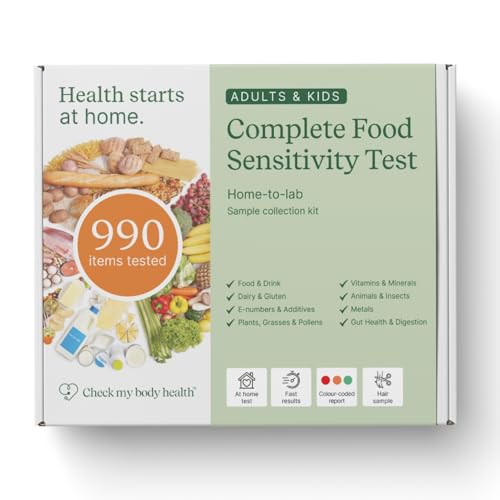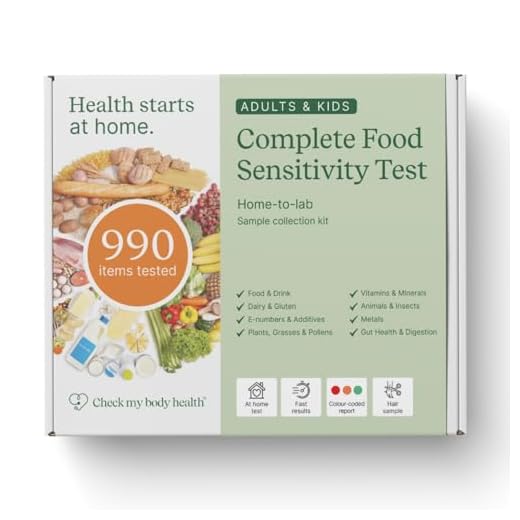




Yes, it’s safe for our furry friends to enjoy a small amount of goat dairy. This creamy delight is often easier on their digestive systems compared to other types of dairy. Many canines tolerate it well, but moderation is key. Start with a tiny portion to see how they react.
Goat dairy contains less lactose than cow products, making it a suitable choice for some pets that are sensitive to lactose. It also boasts a range of nutrients beneficial for their health, including protein and calcium. However, keep in mind that not all four-legged companions will react the same way.
Always consult with a veterinarian before introducing new foods to your pet’s diet. Observing their response after trying a small amount can help determine if this treat is a good fit. If any signs of discomfort arise, discontinue offering it immediately.
Making informed choices about treats not only enhances their diet but also strengthens the bond you share. With the right approach, your pet might just enjoy a delightful new snack!
Safe Dairy Alternatives for Your Pet
Introducing dairy options into your furry friend’s diet can be a delightful experience, but caution is key. Soft varieties, like the creamy product derived from goats, can be enjoyed in moderation. This particular dairy is often easier on sensitive stomachs compared to cow’s milk products, making it a suitable choice for some canines.
Health Benefits and Risks
This type of dairy is rich in protein and essential vitamins, such as A and B. These nutrients can support your pet’s overall health. However, lactose intolerance is common among canines, so it’s wise to start with a tiny amount to see how their system reacts. Monitor for any signs of discomfort or digestive issues, such as gas or diarrhoea.
Serving Suggestions
If your pet tolerates the dairy well, consider incorporating it as an occasional treat. You might mix a small spoonful into their regular food or use it as a topping for homemade treats. Avoid any products that contain additives or flavourings that could be harmful. Always opt for plain, unflavoured versions to keep things safe and simple.
In conclusion, while this creamy delight can be a tasty addition to your pet’s diet, moderation is crucial. Always prioritise your pet’s health and consult a veterinarian if you have any concerns about introducing new foods.
Understanding Dogs’ Dietary Needs
Prioritising a balanced diet is fundamental for our furry companions. Proteins, carbohydrates, fats, vitamins, and minerals play significant roles in their overall health. Feeding high-quality kibble or wet food formulated for specific life stages ensures they receive necessary nutrients.
Be cautious with human food offerings. Many items we enjoy can be harmful. For instance, certain fruits, vegetables, and dairy products can cause digestive issues. It’s best to consult a veterinarian before introducing new foods into their meals.
Regularly monitor body weight and condition. Obesity can lead to serious health problems, including diabetes and joint issues. Adjust portions and select appropriate snacks to maintain a healthy weight. Natural treats, like carrots or apple slices, can be great alternatives to commercial options.
Hydration is equally crucial. Fresh water should always be accessible. Some pets may enjoy ice cubes or water-rich fruits like watermelon as a refreshing treat during warmer months.
Consider any food allergies or intolerances your pet may have. Signs can include itching, gastrointestinal upset, or unusual behaviour. Identifying and eliminating problematic ingredients from their diet can lead to noticeable improvements in their wellbeing.
Lastly, variety can enhance mealtimes while ensuring nutritional adequacy. Rotate between different protein sources and flavours to keep things interesting and provide a broader range of nutrients.
Benefits of Goats Cheese for Pooches
Incorporating this dairy product into your furry companion’s diet can offer several advantages. It’s known for its lower lactose content compared to other dairy types, making it easier for some canines to digest without discomfort. This property can be particularly beneficial for those with sensitive stomachs.
Rich in proteins, this option provides a good source of essential amino acids, contributing to muscle maintenance and overall health. The presence of vitamins such as A, B2, and B12, along with minerals like calcium and phosphorus, enhances bone strength and supports metabolic functions.
Furthermore, the presence of beneficial fatty acids in this dairy choice can promote a shiny coat and healthy skin. If your companion struggles with skin irritations or dryness, this addition might provide relief and improve their overall appearance.
Always remember to introduce this treat gradually. Monitoring for any allergic reactions or digestive issues is crucial, as each individual’s tolerance can vary. A small amount can be a delightful reward, ensuring they enjoy the benefits without overwhelming their system.
Potential Risks of Feeding Goats Cheese to Dogs
Feeding this dairy product can pose several risks for your furry friend. While it is tasty, it may lead to digestive upset in some canines. Lactose intolerance is common among many breeds, which can result in issues like bloating, gas, or diarrhoea.
Allergic Reactions
- Some animals might experience allergic reactions to dairy. Symptoms can include itching, swelling, or gastrointestinal distress.
- If your pet shows any adverse effects after consuming this dairy, discontinue its use and consult a veterinary professional.
Weight Gain and Obesity
- High-fat content in this product can contribute to weight gain if given in excess. Monitor portion sizes to prevent obesity-related health issues.
- Integrate this treat as an occasional reward rather than a regular part of their diet.
Understanding these potential risks is crucial. Always observe your pet’s reaction to new foods and consult a vet if you have concerns about their diet. Prioritising their health ensures they remain happy and energetic.
How to Safely Introduce Goats Cheese to Your Dog
Start with a small amount. A tiny piece of this dairy product is ideal for the first introduction. Monitor your pet for any adverse reactions such as upset stomach or unusual behaviour.
Choose Quality Products
Opt for plain, unflavoured varieties without any added herbs or spices. Avoid those containing preservatives or artificial ingredients. Check the label to ensure it’s free from harmful additives.
Gradual Introduction
Mix a small portion with their regular food, gradually increasing the amount over several days. This approach helps to assess tolerance and allows their digestive system to adjust. If issues arise, reduce the quantity or discontinue use.
Always consult with a veterinarian before making changes to your pet’s diet. They can provide tailored advice based on your furry friend’s health and dietary requirements.
And while you’re adding new treats to your kitchen, don’t forget to check out how to clean cooking grease off kitchen cabinets to keep your cooking space tidy!
Signs of Lactose Intolerance in Pets
If your furry friend shows any of the following symptoms after consuming dairy products, it may indicate lactose intolerance: bloating, gas, diarrhoea, and vomiting. These signs often appear within a few hours after ingestion.
Watch for behavioural changes too. An increase in restlessness or signs of discomfort, such as whining or pacing, can suggest digestive distress. Some animals may even develop a reluctance to eat or drink, especially if they associate the dairy with an unpleasant experience.
Monitoring the frequency and severity of these symptoms is key. If they occur consistently after consuming dairy items, it’s wise to consult with a veterinarian. Testing for lactose intolerance can help determine whether dairy should be part of their diet.
Keep in mind that not all individuals react the same way to dairy. Some may tolerate small amounts without issues, while others may react severely. Adjusting their diet based on observed reactions is crucial for their well-being.
Alternatives to Goats Cheese for Dogs
If you’re looking for substitutes for goat’s dairy, there are several options that can satisfy your furry friend’s taste buds without the associated risks. Here are some great alternatives:
- Cottage Cheese: A lower-fat option, cottage dairy is often well-tolerated. It provides protein and calcium. Introduce it gradually to monitor for any adverse reactions.
- Ricotta Cheese: This soft cheese is creamy and mild. It contains less lactose than many other varieties, making it a suitable choice in moderation.
- Plain Yogurt: Unsweetened, plain yogurt can be a fantastic treat rich in probiotics. Ensure it’s free from additives and artificial sweeteners like xylitol.
- Hard Cheeses: Varieties such as Parmesan or aged Cheddar contain lower levels of lactose. Small bits can make excellent training treats.
- Peanut Butter: While not a dairy product, it offers a tasty alternative. Make sure it’s xylitol-free and use it sparingly to avoid excess calories.
When selecting a dairy alternative, consider your companion’s dietary restrictions, preferences, and any potential allergies. Always introduce new foods gradually and observe how they react. Keep portions small to prevent digestive upset, especially when trying something new.
Incorporating these alternatives can add variety to your pet’s diet while keeping it safe and enjoyable. Always consult your vet if you’re uncertain about introducing new foods.
Consulting Your Vet About Dairy Products for Dogs
Before introducing any dairy items into your pet’s diet, a consultation with a veterinarian is essential. Each animal has unique dietary needs, and a professional can provide tailored advice based on your companion’s health, breed, and age.
It’s crucial to discuss any existing health conditions, as certain issues may render dairy unsuitable. For instance, pets with pancreatitis or certain allergies should avoid such foods altogether. Your vet can help determine if specific dairy options are safe and beneficial.
When addressing concerns about food aggression, you might find it helpful to explore resources like why is my dog so defensive over food. Understanding your furry friend’s behaviour can aid in creating a more balanced feeding environment.
Additionally, the vet may suggest starting with small amounts to monitor tolerance. Keeping a food diary can help track any adverse reactions or improvements in your pet’s health.
| Consultation Points | Considerations |
|---|---|
| Health History | Existing conditions that may affect dietary choices |
| Breed Specifics | Some breeds may have sensitivities |
| Age and Activity Level | Dietary needs vary with age and activity |
| Allergies | Identify potential allergens |
Regular follow-ups are also beneficial to assess how any new additions to the diet are impacting your companion’s overall wellbeing. Always prioritise your pet’s health with informed decisions.








